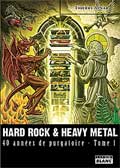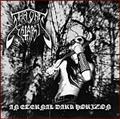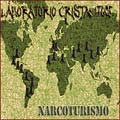INIMICAL (dk) - Lambs To The Slaughter (2007)

Label : Auto-Production
Sortie du Scud : 2007
Pays : Danemark
Genre : Deathcore
Type : Démo
Playtime : 4 Titres - 14 Mins
4 morceaux, 14 minutes : le propre d'une démo. Mais difficile avec si peu de substance de juger du potentiel d'un groupe, surtout lorsque ce dernier emprunte une voie aussi usitée que le Death mâtiné de Hardcore. A l'écoute de ces quatre compos, INIMICAL ne voyage pas dans la voiture balai, mais il n'appartient pas non plus au peloton de tête. Les Danois évoquent les Américains de ALL SHALL PERISH, même si le registre du chanteur évolue exclusivement dans un registre Death lorgnant fortement vers le Hardcore. L'impact en termes de brutalité est donc moindre... enfin... tout est relatif. Dans cet univers d'agressivité, INIMICAL aménage des breaks plus propices au headbanging qui doivent avoir leur petit effet sur scène. Au final, quatre titres carrés donc, bénéficiant d'une production plus qu'honorable, mais qui manquent d'audace. On aurait ainsi aimé que le groupe joue plus sur les ambiances comme sur l'intro de « Deathspawn », aux accents slayériens. Reste à savoir si leur démarche, sans doute un peu trop calibrée, leur garantira ou non une signature sur un label.
Ajouté : Jeudi 14 Février 2008
Chroniqueur : Le Comte de la Crypte
Score :   
Lien en relation: Inimical Website
Hits: 13065
|














